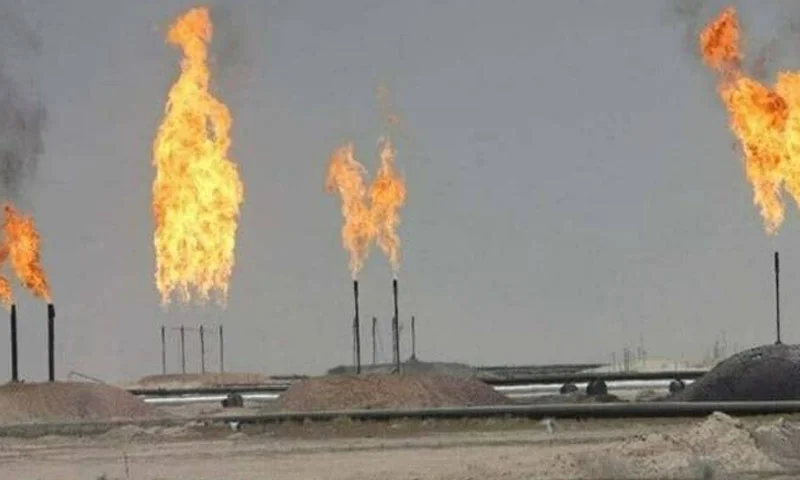- Web
- Feb 05, 2026
Investor confidence soars as new petroleum policy unlocks $5 billion in energy investments
-

- Web Desk Karachi
- Mar 10, 2025

ISLAMABAD: Local and international firms in the oil and gas exploration and production (E&P) sector are expressing strong interest in investing over $5 billion in Pakistan’s energy sector over the next three years.
This surge in investor confidence is largely attributed to recent amendments in the Petroleum Policy and the introduction of an exclusive Tight Gas Policy, which offer enhanced incentives and a more investor-friendly regulatory environment, reported the Business Recorder.
These strategic reforms are poised to unlock new opportunities, bolster domestic energy production, and attract significant foreign and local investment.
Official documents indicate that the revision of gas prices over the past year has notably stabilised the financial health of key entities such as Sui Northern Gas Pipelines Limited (SNGPL) and Sui Southern Gas Company (SSGC), ensuring uninterrupted gas supplies across both industrial and domestic sectors.
The integration of Re-gasified Liquefied Natural Gas (RLNG) diversion in revenue requirements has effectively curtailed tariff differentials, further streamlining the energy sector’s financial landscape.
Additionally, the allocation of gas from newly discovered reserves has enabled Sui companies to sustain supply despite natural depletion, particularly during the critical winter months.
A landmark development occurred with the signing of the Consortium Agreement for the Machike-Thalian-Taru Jabba White Oil Pipeline Project on September 4, 2024, underscoring the government’s commitment to achieving self-sufficiency in oil, gas, and mineral supply.
OGDCL starts natural gas production from Uch-35 well in Balochistan
The Petroleum Division’s vision presses on fostering an investor-friendly environment through progressive policies, cutting-edge technologies, and an effective regulatory framework.
Having previously grappled with declining exploration, outdated policies, and circular debt, the ministry has initiated comprehensive reforms. These reforms permit E&P companies to sell up to 35 percent of their production to third parties, liberalizing the market and enhancing cash flows.
A new high-risk exploration Zone 1(F) was designated, providing higher gas pricing incentives, while the Tight Gas Policy 2024 is designed to promote tight gas exploration.
Prominent international consultancy firms such as DeGolyer and MacNaughton and Wood Mackenzie have been engaged to integrate Geological and Geophysical (G&G) data and facilitate the development of offshore bid rounds. Collaboration with the World Bank has led to the establishment of a cash flow monitoring system and a circular debt management dashboard, reinforcing the structural integrity of the energy sector.
The Petroleum Division has also prioritised gas allocation reforms, placing industries on equal footing with domestic users. This strategy not only ensures stable supplies but also eliminates the necessity for urea imports by securing the operations of fertiliser plants. Furthermore, stringent regulations have been instituted to combat the illegal import and sale of hazardous petroleum products.
In the mineral sector, international consultants are working to align national laws with global standards, with completion anticipated by mid-2025. The resolution of the Reko Diq dispute has also piqued interest from potential Saudi investors, while initiatives such as coal gasification and gemstone exploration are unlocking economic opportunities across Gilgit-Baltistan and Balochistan.
Projects by the Geological Survey of Pakistan (GSP) have covered 51,200 sq. km of geological mapping and conducted six geophysical surveys, providing essential data for mineral exploration, mining, and infrastructure development. These initiatives have not only enhanced scientific understanding but have also generated employment opportunities in remote regions, contributing to socio-economic development.
From January 2024 to December 2025, Pakistan has generated substantial revenues, including Rs54.7 billion in oil royalties, Rs1.46 billion in gas royalties, and Rs2.07 billion in production bonuses, among other sources. To bolster gas sector development, Rs1.16 billion has been allocated for extending gasification within 5 km of producing fields, and Rs10 billion is earmarked to cover RLNG supply differentials for domestic consumers.
SNGPL and SSGCL have successfully expanded their networks with the addition of a 230 km pipeline under the Shaheed Fahad Ashfaq Project and the installation of over 20,000 new gas connections. These efforts have significantly improved gas accessibility and infrastructure across the nation, marking a crucial step toward a more robust energy future for Pakistan.




